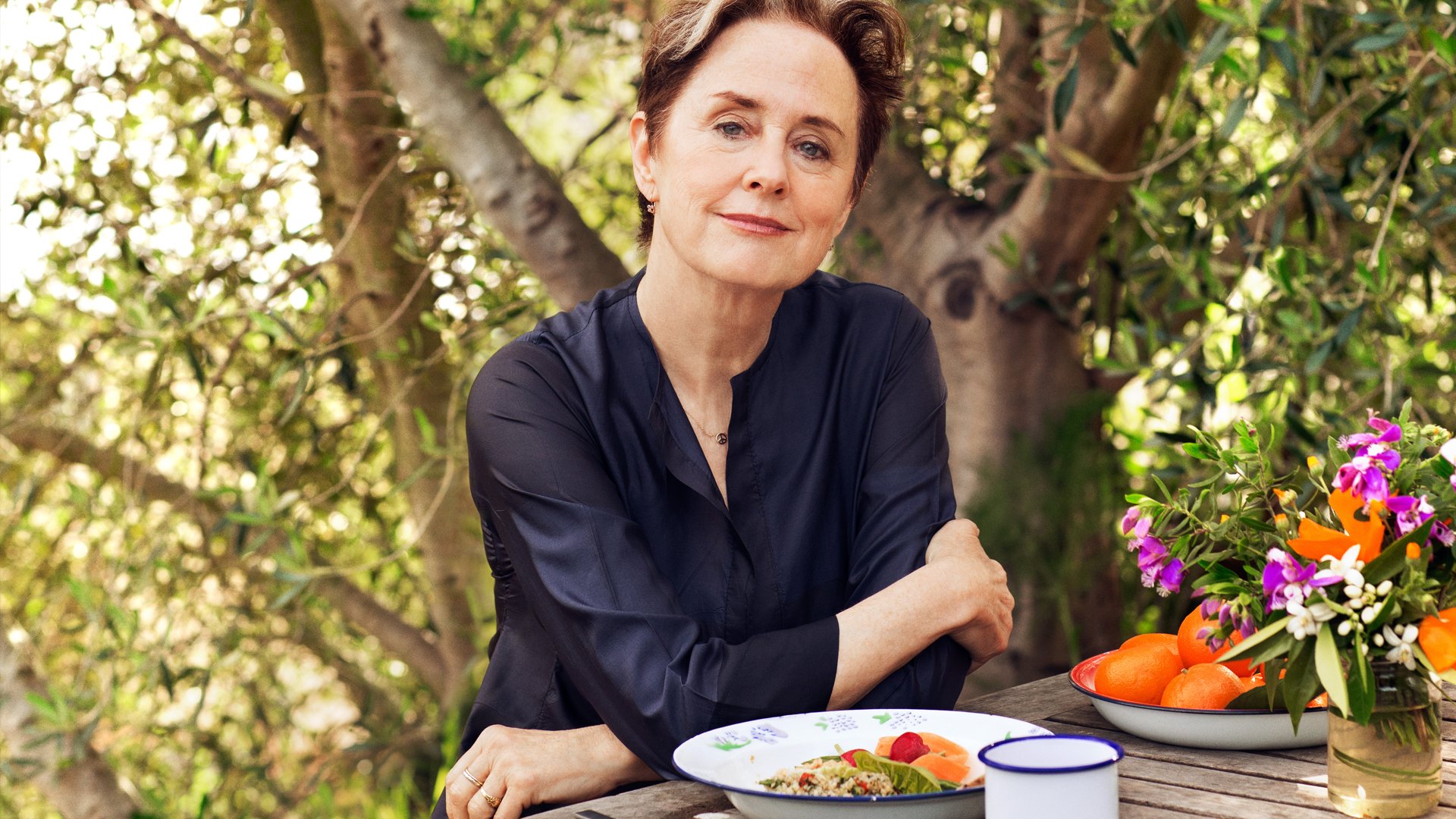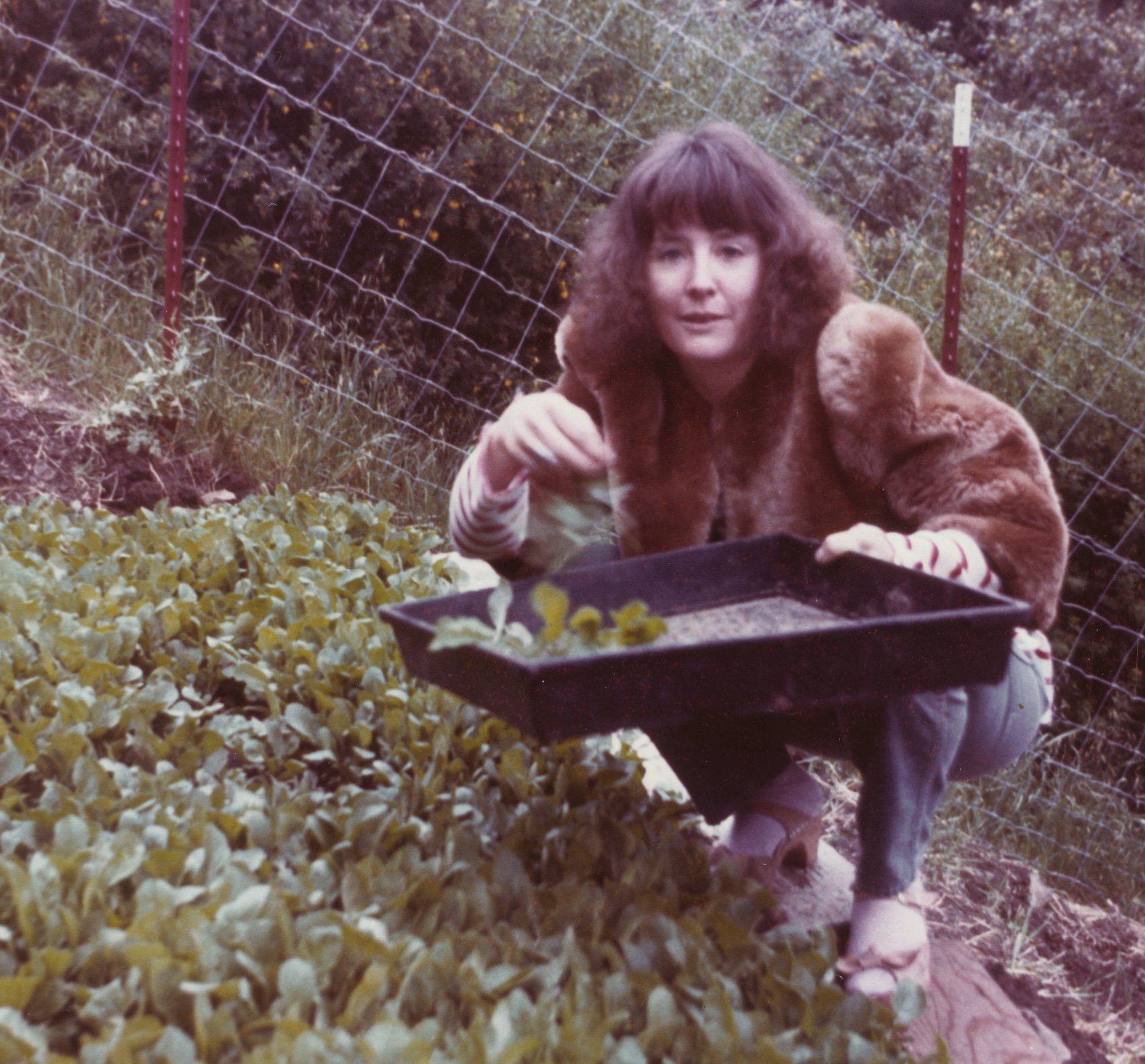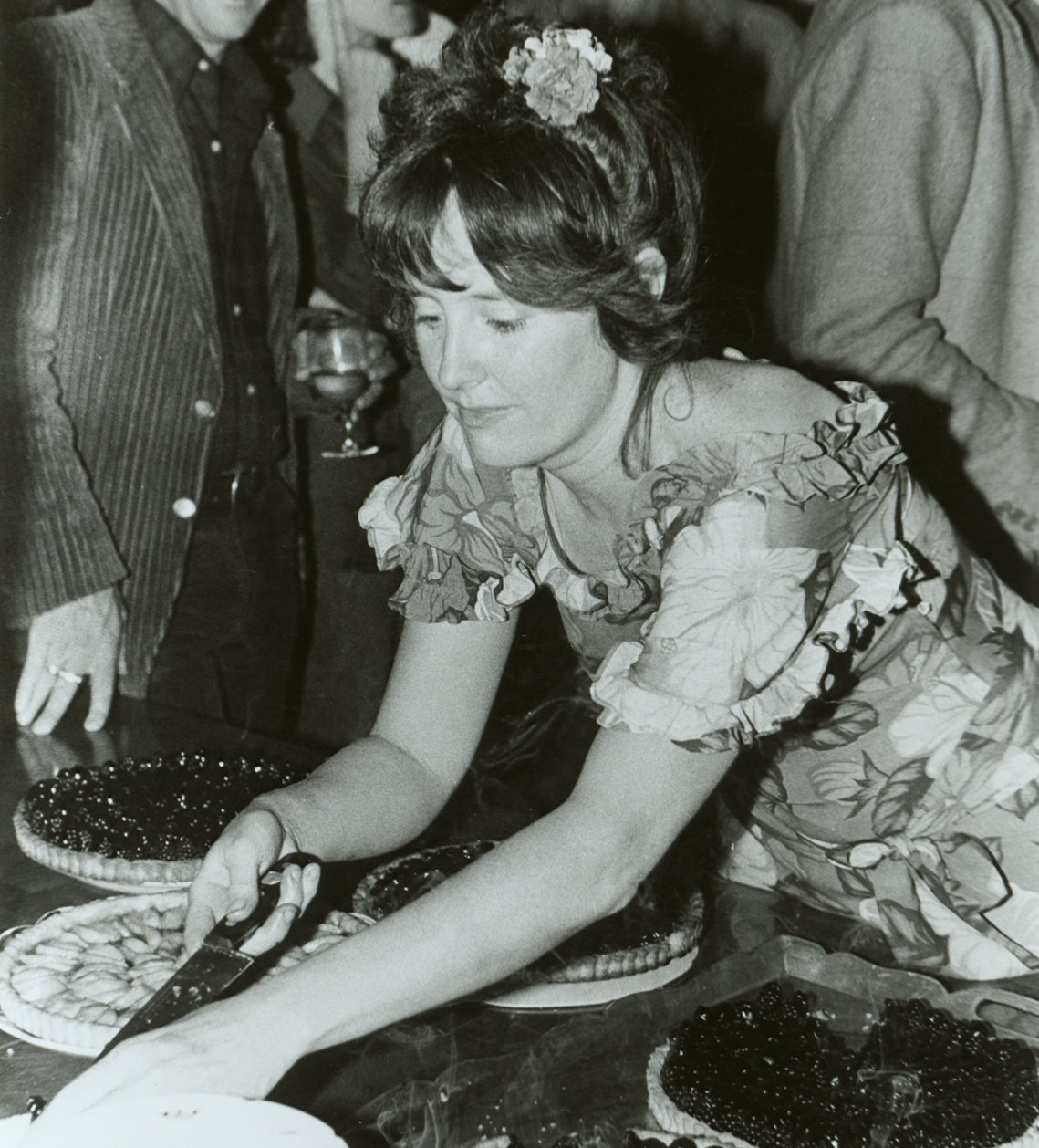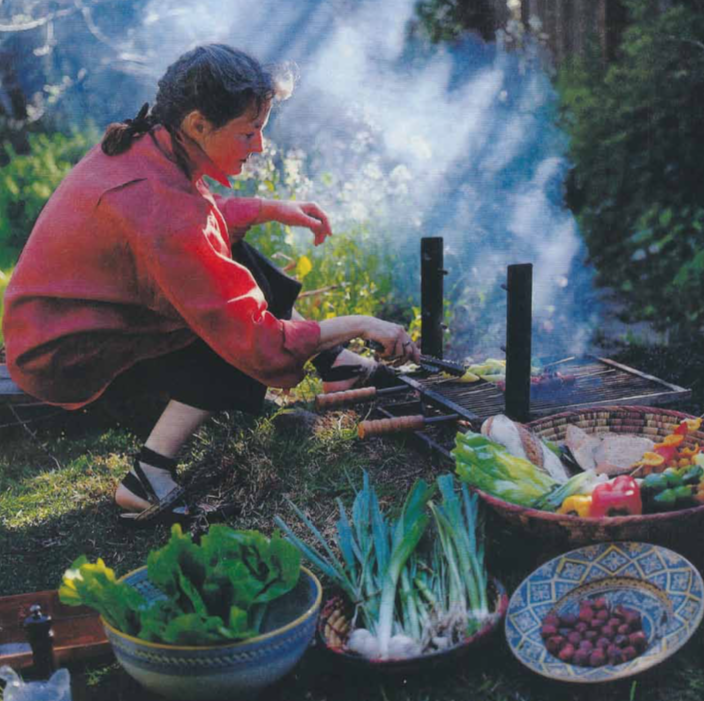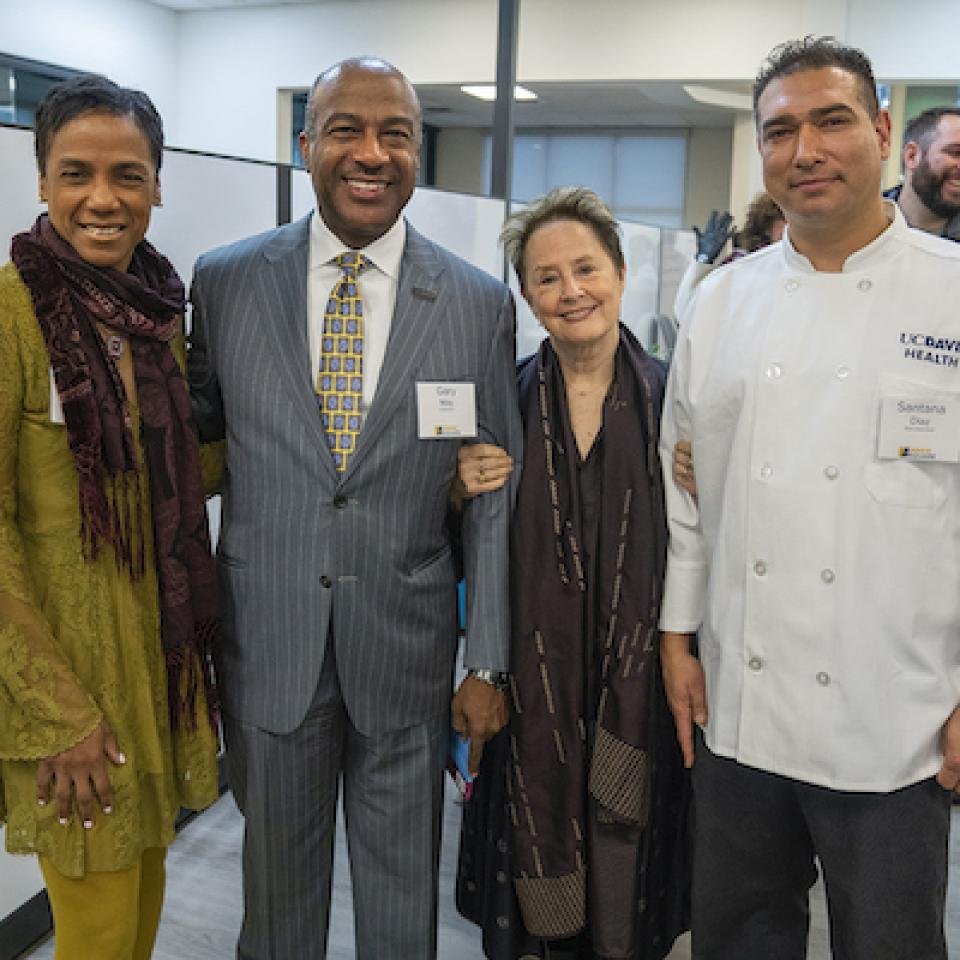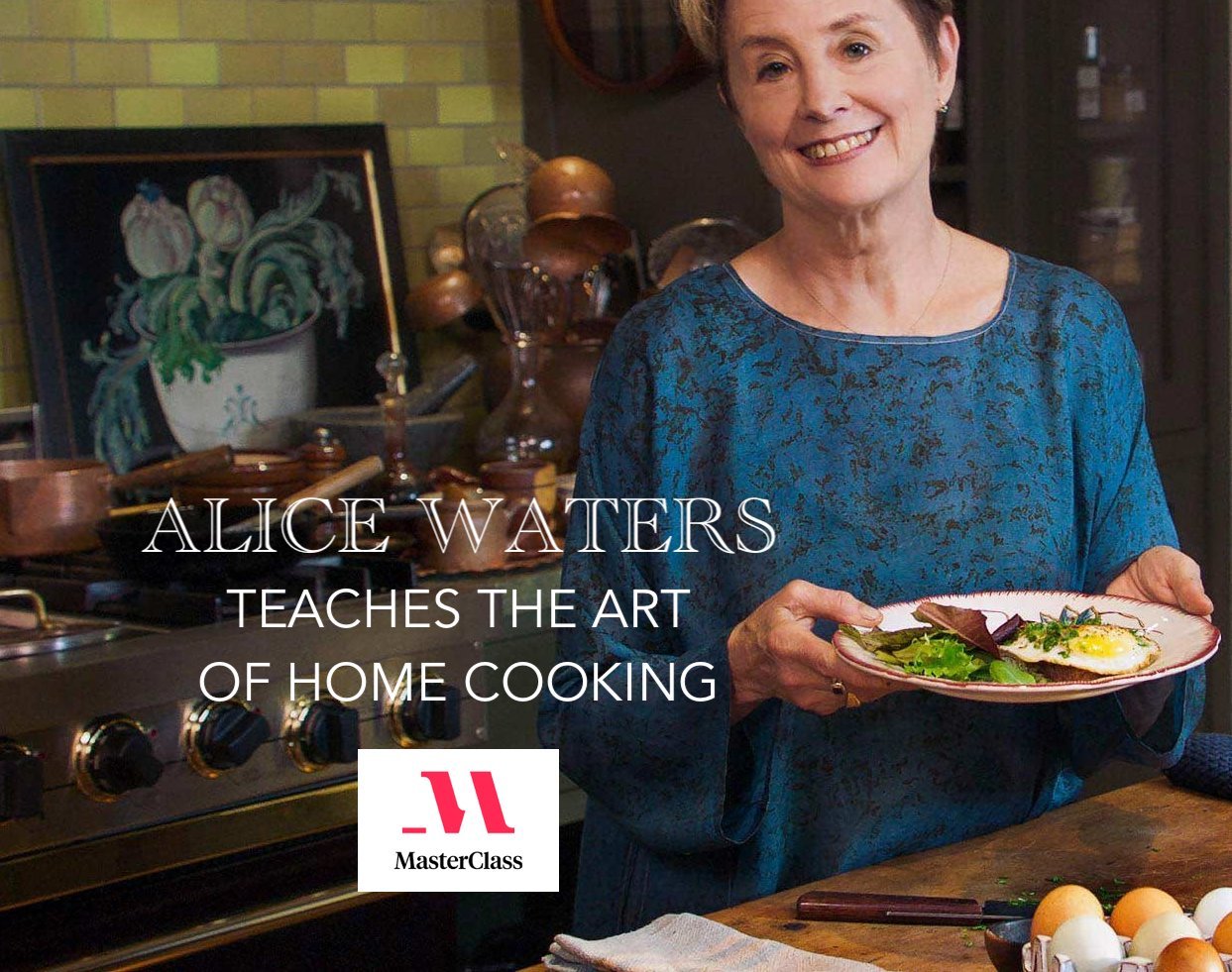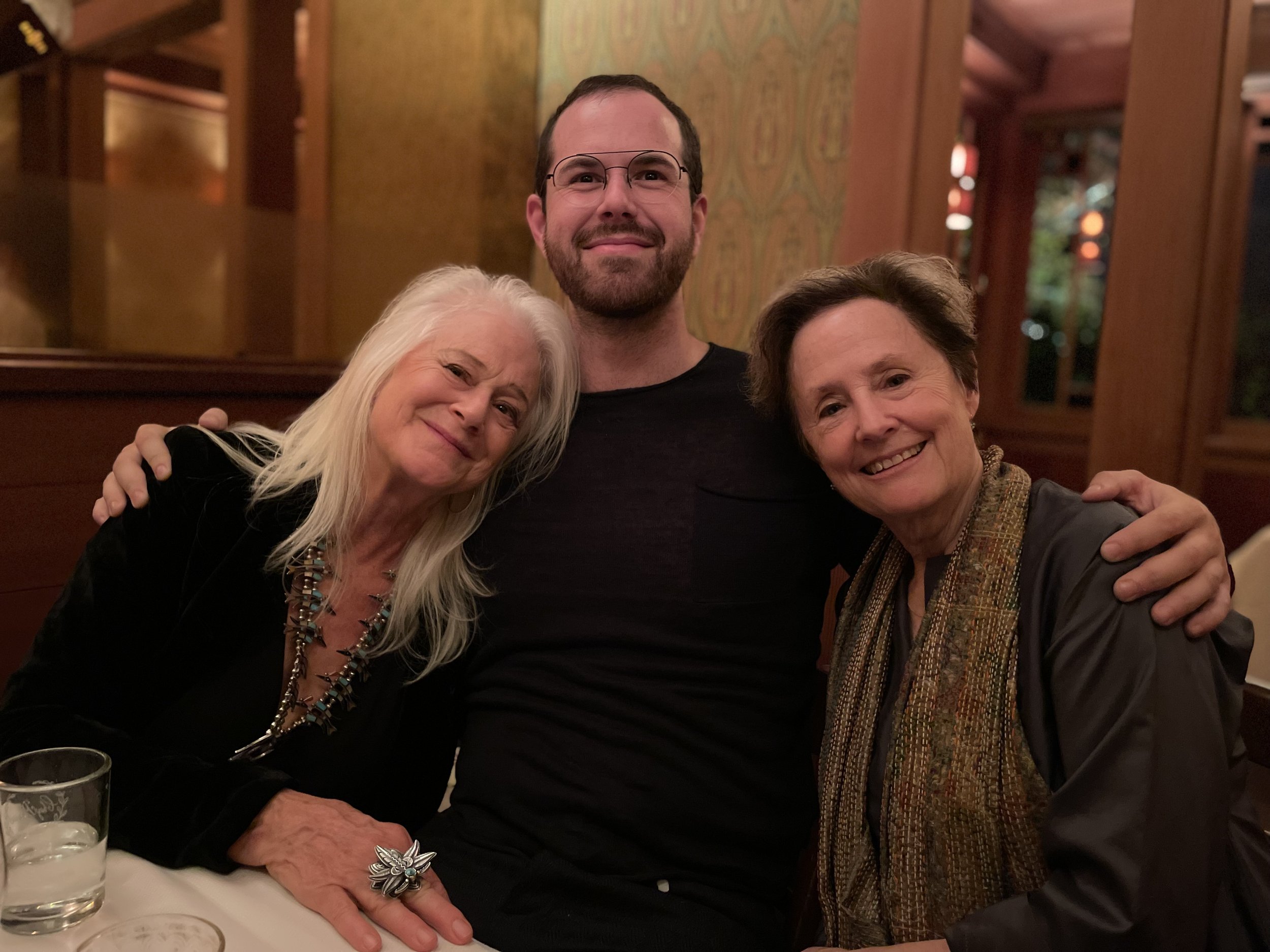Episode 5: The Activist Mindset with Alice Waters
Alice Waters is changing the world – through activism about what, and how, we eat.
If we are what we eat, we’re better because of Alice.
Imagine a world where “iceberg” was the only lettuce at your supermarket. Where “farmers” and “markets” weren’t words that connected together. Where “local” meant the nearest gas station rather than something grown seasonally somewhere close to your home.
That, in my experience, was the world before Alice Waters.
Meet Alice, an unstoppable revolutionary.
We might think Alice’s story began when she first opened the doors of Berkeley’s beloved Chez Panisse back in 1971.
Yet the vision that drove the ambitious, somewhat unlikely magic that sparked the restaurant’s rise began much earlier: when Alice was inspired by the Free Speech movement rising on UC Berkeley campus…
…and well before that, by the bounty her mother cultivated in a Victory Garden at her family’s New Jersey home.
USDA promotional flyer for WWII Victory Gardens
Back in the mid-40s, at the height of WWII, nearly any homeowner with a piece of land proudly grew a Victory Garden. Folks who didn’t have yards lined their windows with planter boxes or set up plots in local parks or open spaces. Rooftop gardens capped many apartment buildings, providing both freshly grown food and a place where residents could gather and spend time together.
At a time when commercially-grown food (and the transportation that moved it nationwide) was prioritized for the war effort, Victory Gardens ensured homegrown self-sufficiency. What’s more, many foods, especially canned vegetables, were rationed. Homes that didn’t grow their own set spare tables at mealtime. Our government encouraged Victory Gardens as a national effort. And as Alice recalls, they were also something of an act of solidarity, even defiance – one that she greatly loved.
Recalling these days, Alice speaks of her family’s humble means — and her appreciation for the resourceful frugality of those times.
“My parents always had lots of extra fruit and vegetables, and using them all up was part of the victory garden philosophy. My mother made jam from the rhubarb and applesauce from the extra apples. We gave away vegetables and traded with the Sullivers across the street, the sort of food-swapping that happens these days around community gardens. My mother was very thrifty in that way. She must have been keeping a compost heap back there in the garden, too, because we had only one little garbage can for the entire week — we were a family of six, with a garbage can only eighteen inches high and maybe twelve across. We put in a paper grocery bag, and all our trash had to fit in there. For a family of six!”
– from Coming to My Senses: The Making of a Counterculture Cook, by Alice Waters, 2017
At Berkeley, Alice deliberated over choosing a major. What she finally decided — French Cultural History, 1750-1850 — shaped all that followed. That century, after all, framed the French Revolution.
Junior year landed her in France, where from her first bowl of soupe de légumes she knew something had changed. The rest, as it’s said, is history.
Once back home her interests drew her increasingly toward the kitchen and to the magic of her own garden, where her determination increasingly connected her to vegetables and herbs that were all but unknown in most US markets at that time.
The “of the season” and “locally grown” ways that were a given in France? All but unheard of in the US, which in the mid-60s was much more about efficiency and low prices than about flavor, nutrition, or pesticide-free. In my own childhood home, the memory of scarcity and rationing lingered in my mother. Bargain-priced canned foods represented security for her, and she stockpiled them with an understandable ardor.
Much to my chagrin, I’ll admit. Once I’d tasted the on-the-cob sweetness of fresh farm-grown corn the canned kernels spooned on to my dinner plate lost their appeal.
Back in Berkeley, though, Alice persisted. As her garden plot flourished so did her following.
Alice cultivating her magic, over the years
The excitement gathering around her table gained enough momentum for Alice, at 27, to plunge headfirst into becoming a restauranteur, one offering the revolutionary (and French-inspired) notion of serving one fixed-menu offering each night. Reading her memories of the early days I often wonder how she made it through.
Yet she did. And then some. It wasn’t long before every table was filled each night, with a sparkling cast of foodies, celebrities, reviewers, and curious travelers pulling whatever strings they could to secure a seat at Chez Panisse. Nor was it long before the awards started: numerous James Beard accolades, praise from venerated NY Times food critic Ruth Reichl, and rising mentions of the against-the-odds restaurant in a small bungalow on an ordinary Berkeley avenue as one of the finest restaurants in the world.
You don’t need me to tell more of Alice’s story, or that of Chez Panisse. Any Google search will share endless adventures and accolades, references to her books, stories of well-known chefs who got their start in her kitchen, the rise of Slow Food, Farm-to-Table, sustainable and even organic movements that trace inevitably back to her.
Yet what I really want to share about Alice has less to do with the past – delicious as it is – than with the future. Because what Alice is growing now has to do with kids, through a pioneering movement called The Edible Schoolyard Project.
The Edible Schoolyard Project is a nonprofit organization that transforms education by using organic gardens, kitchens, and cafeterias at public schools to teach both academics and values. Connecting kids to the satisfaction of nourishment, flavor, stewardship, and community, it celebrates the deep creativity and learning implicit in cultivating a garden and enjoying its bounty. Nearly 6.000 Edible Schoolyards grow in the US alone – at least one in every US state and territory – and also in 75 countries around the world.
Alice, with some of the students who inspire her
Yet that’s only the beginning. Revolutionaries, it turns out, continue to revolve, and to evolve, and as Alice looks ahead she envisions a future where school lunches celebrate seasonality, nourishment, and farm-fresh bounty, the fruit of a vibrant collaboration between public schools and local farmers. She talks about this “farm to school” initiative in this episode, careful to add that it’s every bit as much about school-to-farm, a truly reciprocal alliance between regional growers and a future nourished by their food.
I could go on and on about Alice. You probably noticed that. She’s been a hero for decades, despite the fact that I’ve only dined at her restaurant once (that’s my son Matt sharing the occasion with me in the last pic below). Yet her back-alley pop up markets brightened my senses during Covid, I’ve read most of the books she’s written (plus a juicy biography penned by a tell-all hand), and I’ve followed her adventures in all of the way the world has celebrated it. It’s incredibly satisfying for me to share her with you here.
Pictured above:
UC Davis Chancellor Gary S. May and LeShelle May, along with Alice and Chef Santana Diaz, launching the Institute for Edible Education at University of California, Davis
Alice welcoming her Masterclass, “The Art of Home Cooking
Yes, me, savoring the moment at an Edible Schoolyard Project dinner at Chez Panisse
One more thing.
As Alice mentions in this episode, she trained as a Montessori teacher and credits the Montessori way for her deep commitment to nurturing the appreciation of creativity and beauty in kids. The image below shows her doing just that, long long ago. Then there’s a video I had to share – and then, for anyone who wants to explore Alice’s current generous sharing of edible education and much more, a few links below.
THANK YOU for being part of this inaugural interview.
Special thanks to the voices who added to this episode:
Aaron Ojalvo of the SF/Marin Food Bank; alum of The Edible Schoolyard Project
Dara from Silver City, NM
…as well as to The Commonwealth Club of San Francisco for their generous permission to use their interview with Alice from July, 2022.
I am so honored to celebrated Alice and her legacy as I launch my own long-standing dream… this podcast, The Brain and Beyond. .
If you’d like to immerse in all things Alice, check out the links below. Treat yourself to the free archives of UC Berkeley’s amazing Edible Education 101, featuring classes like “Setting the Table” (featuring Alice), Michael Pollan exploring “How We Decide What to Eat,” and my favorite, on “becoming climate conscious eaters” featuring some true stars of sustainable and regenerative agriculture. And more.
Books by Alice Waters (I especially love “Coming to My Senses”)
Follow Alice, The Edible Schoolyard Project, Chez Panisse, & Edible Education on Instagram
EdibleSchoolyard.org, featuring the school cafeteria pledge

